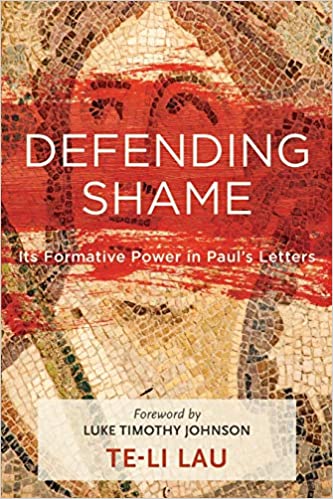A Brief Book Summary from Books At a Glance
by Mark Baker
About the Author
Te-Li Lau received his PhD from Emory University and serves as associate professor of New Testament at Trinity Evangelical Divinity School.
Overview of the Book
Today’s society thinks that shame is always bad. What do we do, then, when Paul says something like “I say this to your shame” (1Cor 6:5; 15:34)? Furthermore, how do we understand Paul’s public rebuke of Peter and his instructions for excommunication of unrepentant sinners? This book provides a thorough examination of the Pauline concept of shame. Examination of Paul’s letters shows that the rhetoric of proper shame is used by the Holy Spirit to produce true conviction of sin as opposed to mere surface-level obedience. In today’s society, it feels like an uphill battle to think that there can be anything redemptive about shame, but it is this exact category-shifting work that we need to do if we are to hear Paul rightly when it comes to shame.
Table of Contents
Introduction: A Fractured Understanding of Shame
PART 1: FRAMEWORK
1 Definitional Background
2 Greco-Roman Backgrounds
3 Jewish Backgrounds
PART 2: EXEGESIS
4 Paul’s Use of Retrospective Shame
5 Paul’s Use of Prospective Shame
6 Constructing Paul’s Use of Shame
PART 3: CULTURAL ENGAGEMENT
7 Contemporary Contribution
8 Contemporary Challenges
Introduction: A Fractured Understanding of Shame
We have a mental category for understanding the nuances of some emotions. Take anger, for example. There is righteous anger, which is good and even necessary at times. Of course, there is also unrighteous anger that we must avoid. But what about shame? We tend to think that an emotion such as shame is always bad. We know that shame “has the capacity to push us toward unhealthy, self-destructive, and violent patterns of behavior. Whether shame is necessarily destructive is a question that needs to be probed” (3).
If we look closely at Paul’s letters, we will find that he occasionally uses the rhetoric of shame. For example, twice in the Corinthian correspondence, Paul states, “I say this to your shame” (1Cor 6:5; 15:34). Paul also tells Titus to act virtuously so that his opponents might be ashamed (Titus 2:7–8). Paul’s rhetoric of shame is an underdeveloped area in Pauline scholarship, and this work seeks to fill this gap. I therefore put forward this thesis: “I understand shame primarily as a moral emotion and focus on the ethical significance of the shame experience in Pauline texts” (10).
PART 1: FRAMEWORK
Chapter 1: Definitional Background
“Shame can broadly denote the objective reality of disgrace or the subjective experience of pain that arises from falling short of some standard” (13). Shame is an emotion and is different from humiliation, embarrassment, and guilt. Shame has to do with self-assessment, whereas humiliation focuses more on someone else’s contempt toward a person.
Embarrassment has to do with a mistake that does not reflect character, but shame focuses more on the character of the person. People often assume that guilt is not an emotion but a legal state, while shame is the emotion one might feel because of guilt. While this distinction might be true on occasion, oftentimes shame and guilt are used interchangeably, so we should beware of artificial distinctions between the two terms. Overall, “I thus define shame as the painful emotion that arises from an awareness that one has fallen short of some standard, ideal, or goal” (29).
Chapter 2: Greco-Roman Backgrounds
In order to get a better understanding of the Greek words used to convey the concept of shame, we first need to look at how Greek and Roman authors “understand shame and its role in moral progress” (31). Protagoras tells a story about Zeus bringing two gifts to humankind, justice and shame. In this story, Protagoras uses “shame” almost interchangeably with the cardinal virtue temperance, showing that it is “primarily a social emotion that enables us to connect with those around us” (35). Democritus links shame with conscience, noting a person’s need to feel shame before he can have true repentance.
[To continue reading this summary, please see below....]The remainder of this article is premium content. Become a member to continue reading.
Already have an account? Sign In
